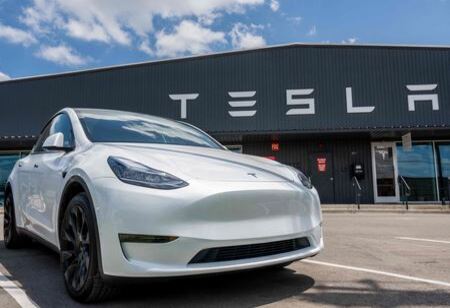
Tesla Achieves Historic Fully Autonomous Model Y Delivery


Tesla has achieved a significant milestone in electric vehicle (EV) technology with the fully autonomous delivery of a Model Y, which successfully traveled from the factory to a customer's home across town, including highways, a day earlier than anticipated.
This achievement was announced by Tesla CEO Elon Musk on X on June 27, 2025, and represents a major step forward in self-driving technology, illustrating the potential of autonomous EVs to revolutionize transportation. The delivery, which reached a top speed of 72 miles per hour (mph), was conducted without any human presence in the vehicle or remote oversight, establishing a new industry standard.
The event demonstrated Tesla’s state-of-the-art autonomous driving system, capable of navigating public highways without human involvement.
This accomplishment showcases the advancement of Tesla’s software and AI chip designs, which facilitated the vehicle's journey. The Model Y, renowned for its sleek aesthetics and remarkable range of up to 330 miles per charge, relied solely on its sophisticated sensor system and neural network to navigate complex driving situations.
Also Read: Spacetech Startups Propelling Modern Space Innovation
This success builds on Tesla’s continued efforts to enhance its Full Self-Driving (FSD) suite, now achieving level 4 autonomy, wherein the vehicle handles all driving tasks autonomously under specified conditions.
For electric vehicle owners, this innovation indicates increased convenience and efficiency.
The capability for a vehicle to be delivered autonomously from the factory to a residence removes the need for manual transportation, potentially lowering costs and saving time.
This could allow Tesla to broaden its autonomous delivery services, providing a significant advantage in the EV market. For the larger automotive industry, this milestone may hasten the acceptance of self-driving technology, motivating other manufacturers to invest in comparable systems. It also suggests future prospects, such as autonomous ride-sharing or logistics fleets, which might transform urban mobility.
From a technical perspective, the delivery highlights the durability of Tesla’s proprietary AI chips and software, optimized for real-time decisions at highway speeds. The car's ability to sustain a maximum speed of 72 mph over an unreported distance indicates a high level of accuracy in obstacle detection and path planning. However, this progress brings forth regulatory challenges. Existing U.S. legislation mandates human supervision for autonomous vehicles on public streets, and Tesla’s achievement could prompt lawmakers to re-evaluate safety regulations and certification protocols.
Also Read: Democracy Summit 2024: Leaders Perceive Tech as Democracy's Double-Edged Sword
In conclusion, Tesla's autonomous Model Y delivery signifies a crucial turning point for the EV sector, marrying innovation with practical use. As the technology continues to evolve, it may transform transportation logistics, offering both technical wonders and new economic prospects, all while addressing the changing regulatory landscape.

